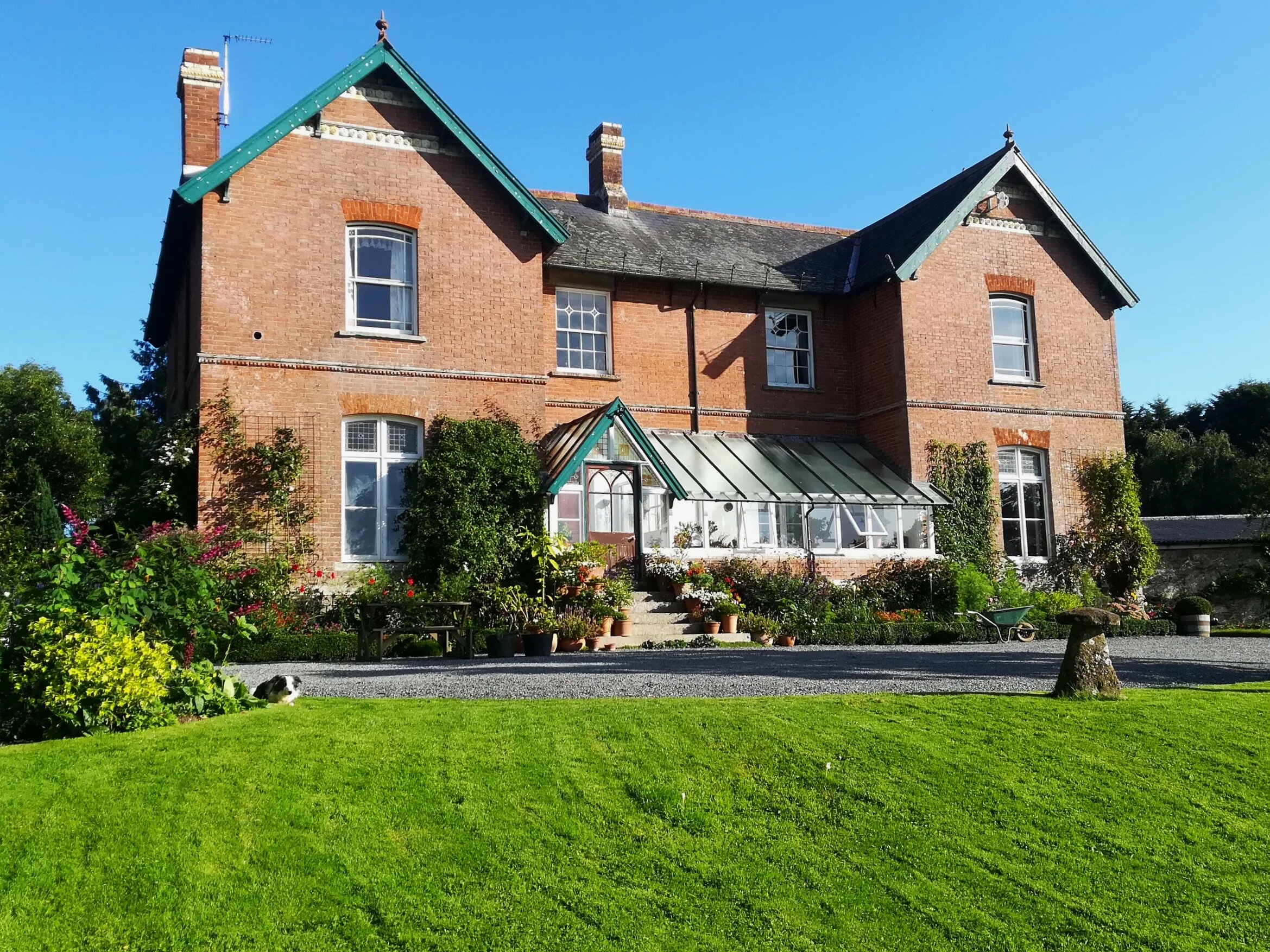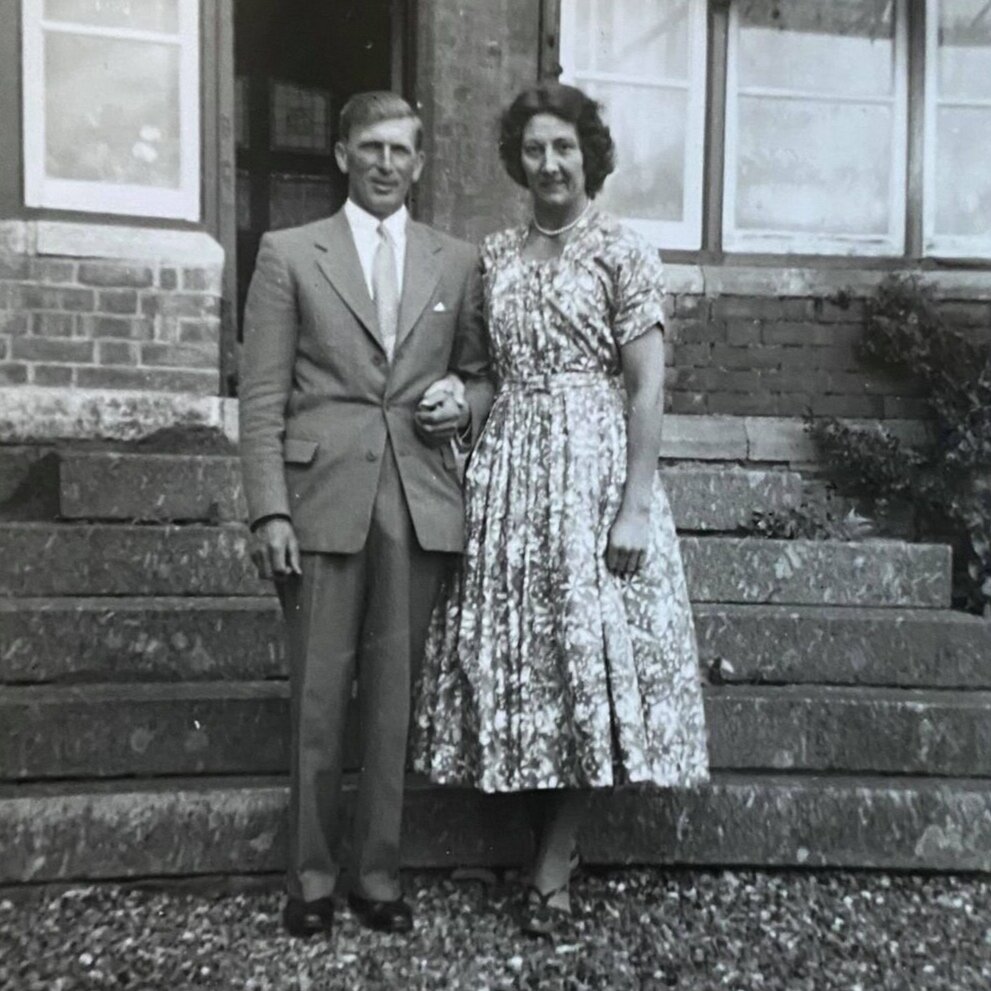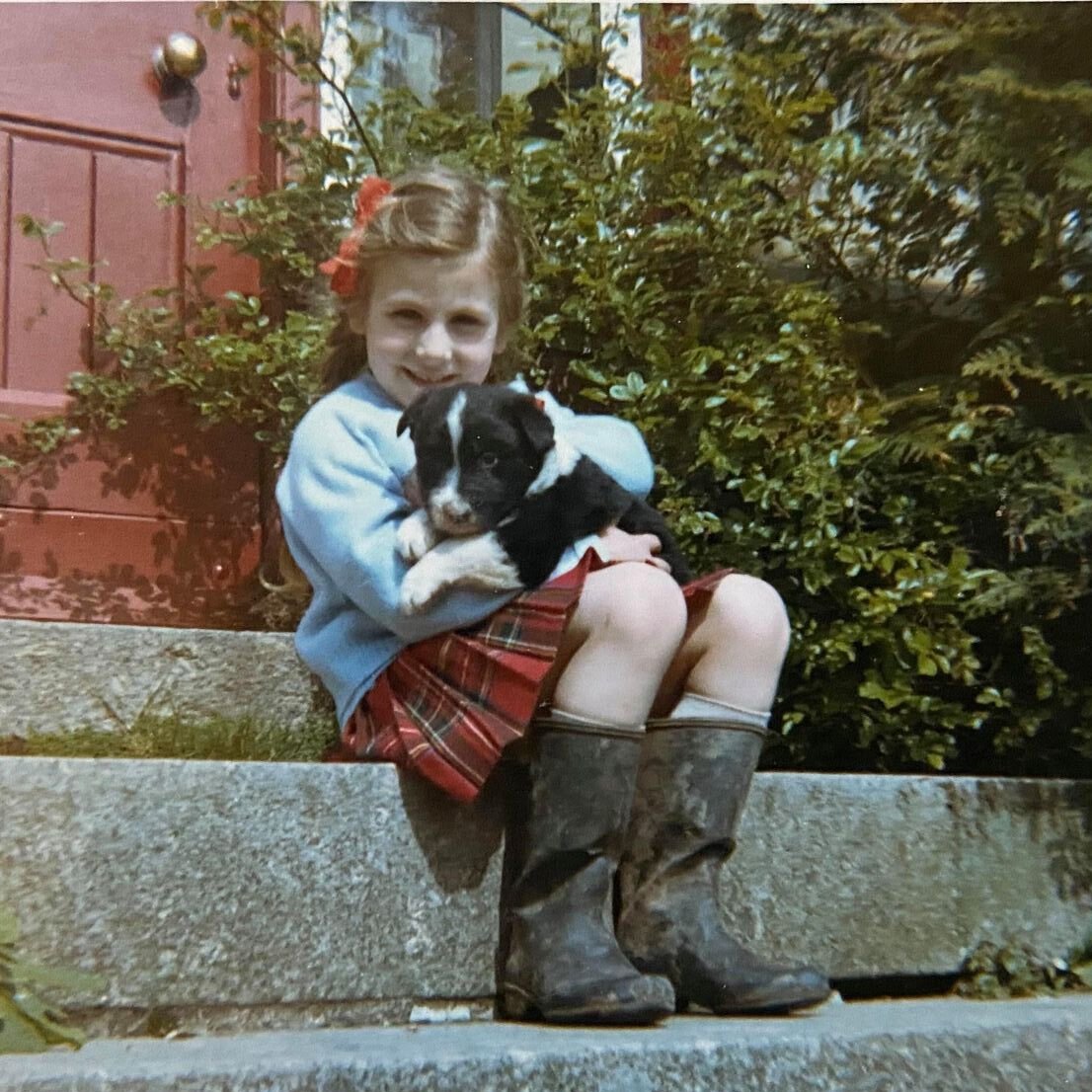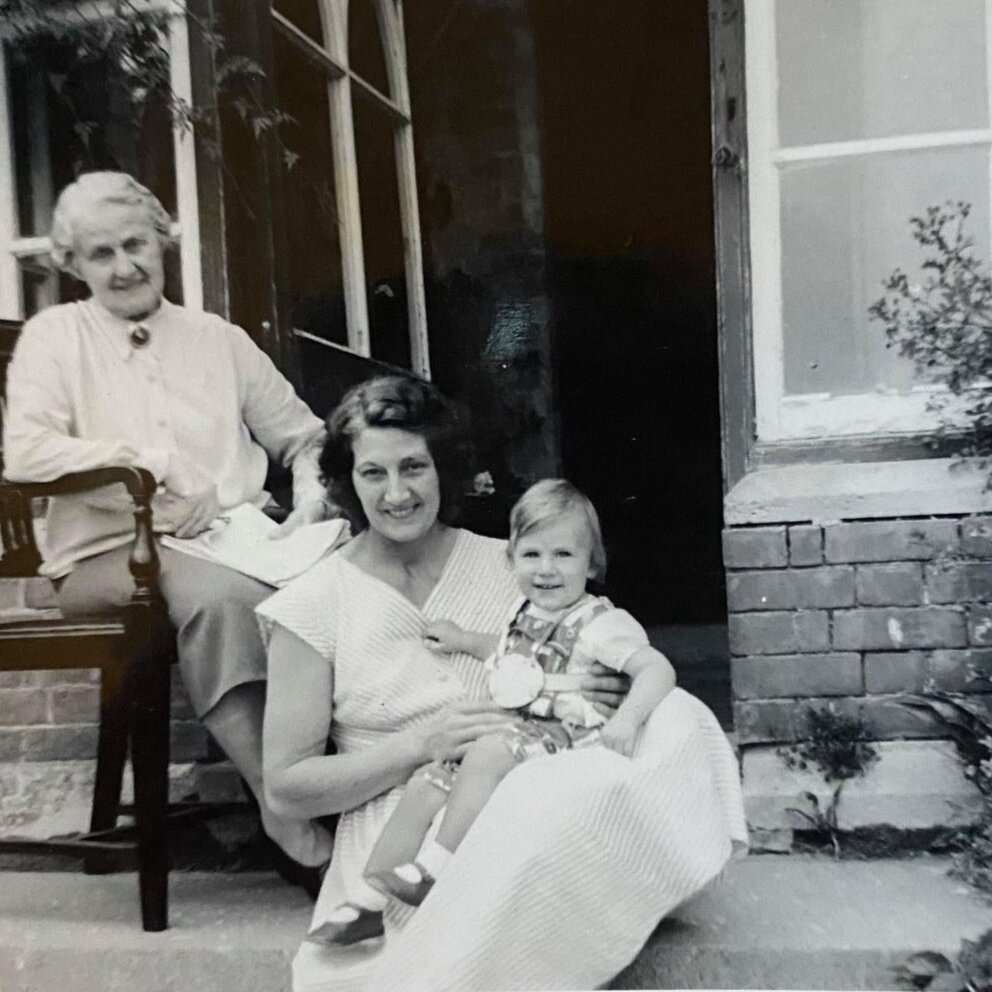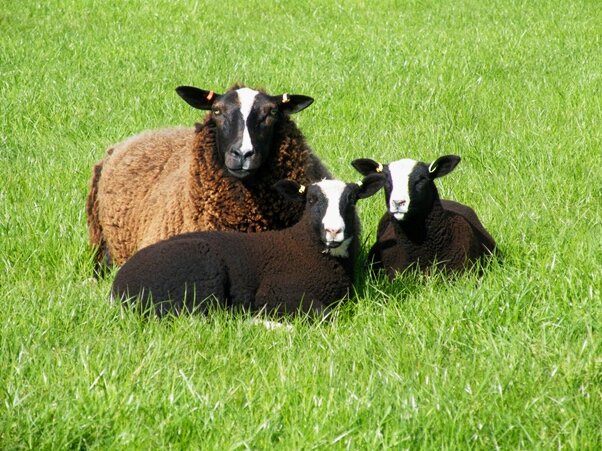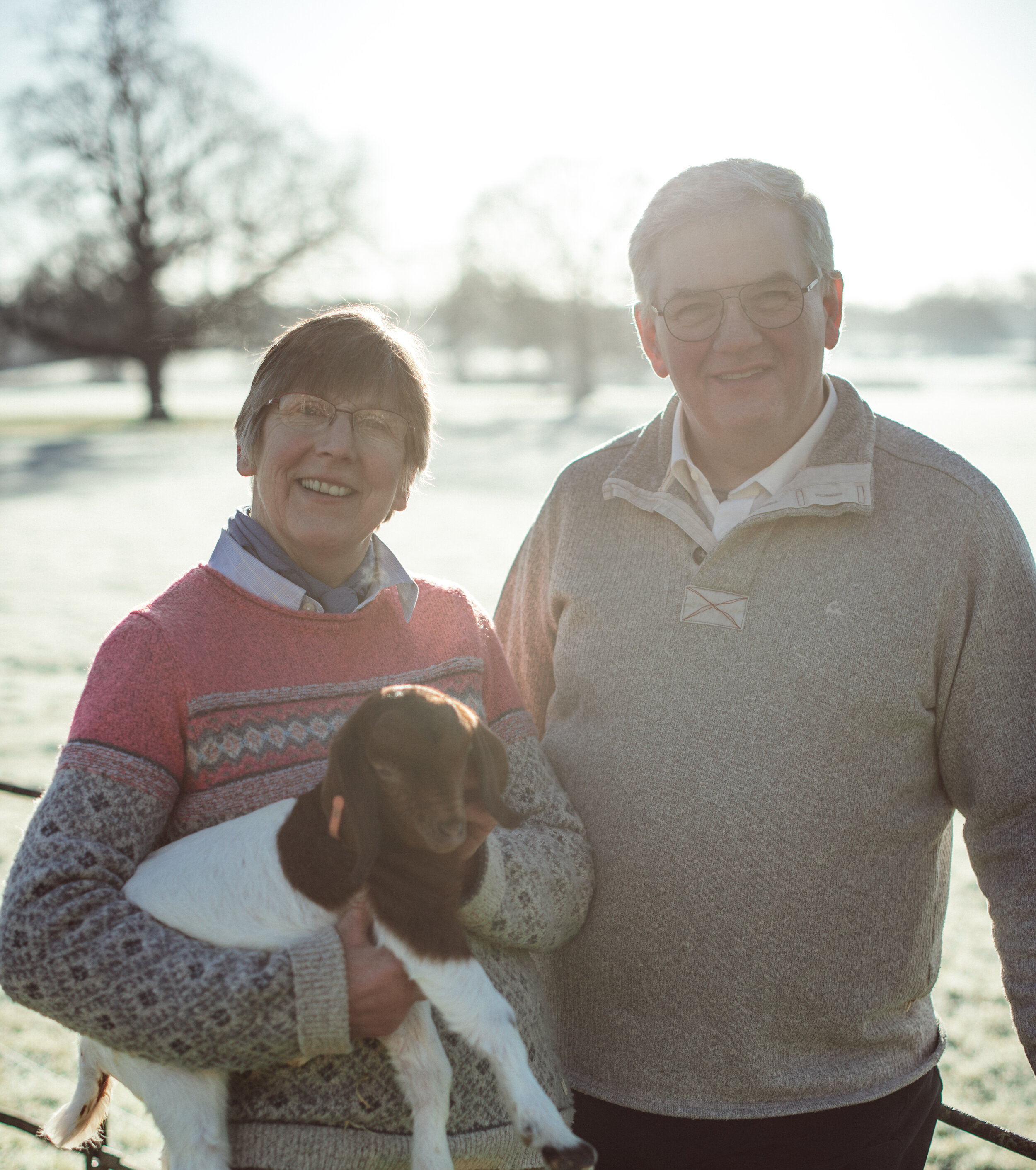A little bit of history
Melanie’s Grandfather, Hermon Peters, came to Westcott in 1935, together with his wife and their 4 children. At that stage, the farm was rented and twice the size it is today. Herman’s two sons, Sydney and Henry, worked the farm until their father’s death in 1961, when they took the opportunity to buy half each.
The house remained with Melanie’s father, Sydney, who by that time had married her mother, Rene, who he met at Chapel, whilst her family were visiting the area on holiday from Surrey. They farmed Westcott as a traditional mixed farm, which included a herd of Friesian dairy cows.
Melanie attended the local agricultural college, and began to take an increasing role on the farm, eventually taking on the day to day running after her parents retired. In time, she sold the dairy herd and replaced it with a beef suckler herd and a flock of Zwartble sheep.
In 2007, Melanie married Peter, a plant mechanic, and together they have moulded the farm to where it is today. Peter’s practical hand as well as his life long love of the countryside and the natural world, dove tailed well into farming life. When Melanie’s father died in 2014, the couple had the opportunity to look again at the farm business and explore new avenues, specifically the start up of a goat meat enterprise, something they had both been really interested in.
our goats
The goats at Westcott are based upon the Boer goat, a breed originally from South Africa, that was introduced to the British Isles some 30 years ago. The breed is rapidly gaining popularity, thanks to it’s reputation for high quality meat. While a small group of does kid before Christmas, the main herd kid in March. This is so they can move out onto pasture once the kids are strong enough, taking full advantage of the natural growth of spring grass and bushes. The kids then stay with their mothers until weaning. Goats don’t have the lanolin water repellent properties that sheep do in their wool, which means they don’t tolerate rain in the same way, so it’s important that they can retreat to shelter if it rains. After weaning, kids and does are kept in separate groups until we house them for the winter.
Goat meat is one of the most widely eaten meats worldwide, although historically, it’s been less popular in the UK. Well that is changing rapidly. Not only is goat meat incredibly tasty, it’s healthy too. While it’s classed as a red meat, it has less cholesterol than beef, pork or chicken. Goat’s are sustainable within the environment, in as much as they eat the food we can’t, to produce food we can. Contrary to popular belief, goats are fussy eaters, much preferring to browse leaves, ivy and bark before grass. They are often used within forest management to tightly graze down specific areas, creating fire breaks. At certain times of the year, it is not uncommon to find our herd ranging free across the farm. Consequently we have to accept that they tend to make their own routes, often choosing to go through the hedge and not the gateway! They are however creatures of habit and will always return to their shelter barn and home paddock for the night.There are many ways to enjoy goat meat. We produce our own tasty sausages and burgers, as well as diced meat which is perfect for curries. Peter makes a brilliant curry and you can find his recipe here.
our cattle
The maternal side of the beef herd are Limousin, a breed that originated in central France. It has been in the UK since 1971 and is now the most popular beef breeds in the country, either as a crossing sire or, in the pure bred form, as it is here at Westcott. Farm systems must adapt to consumer choice, and while a family gathering around a Sunday roast is becoming less usual, a smaller joint or steak can often be the focus of a mid week meal. Mince is the most popular choice, as it can be prepared quickly and is versatile. Whichever way you choose to eat beef, what matters is the taste and the knowledge that it has been produced to a high standard, respecting the envoirnment and animal welfare.
At Westcott we have chosen to use a Hereford bull as our herd sire, leaving us with a calf that is thrifty, and as it grows, makes the best use of grass and conserved forage (hay and silage). The means we no longer depend on the volume of cereal based feed that we were with pure bred cattle, which is more economical as well as environmentally friendly.
our sheep
Our small flock are based on the Zwartble, a breed originating in Holland. They are characterful sheep, known for their friendly manner, their distinct white blaze and socks, as well as being excellent mothers. Black fleece is worth very little on the standard wool market, so we have been selling ours to a company that processes it for other purposes such as insulation and sound absorbing. The meat is particularly tasty and we sell many finished lambs locally.
PETER’S PLANT SUPPORTS
Being a keen gardener, Peter has spent the last few years also developing his plant support business. His is a very familiar face a the local Farmer’s Markets, where he sells farm produce and at the local Shows where he showcases his metalwork.
The Future at Westcott
As the demand for our goat meat has increased over the years, we hope to continue our presence at Cullompton and Crediton Farmer’s Markets, local Food Fairs with plans develop online sales in the pipeline. In terms of our cattle, the proportion of Hereford in our herd will rise over time. We are excited to be developing more multi species (herbal leys) grass fields on the farm to increase our biodiversity, as well as the adoption of paddock grazing, which means that cattle are moved onto fresh grazing every few days, benefiting both animal and grass.
